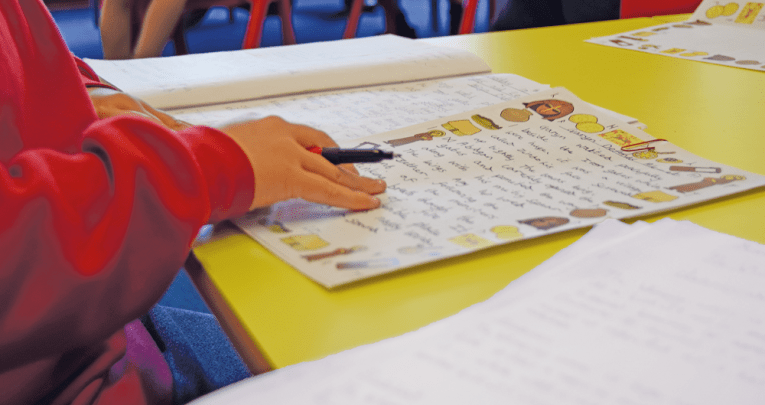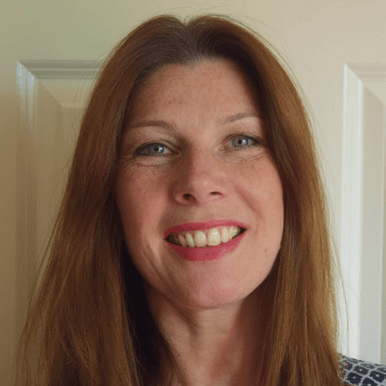Entering a National Competition En Masse can Improve Children’s Writing

Using a creative writing contest has produced some surprising outcomes for the children at Garstang Primary School, says deputy head Suzanne Thomas…

Like many primary schools around the country, writing is one of our school improvement priorities. And just like for many other schools, the focus is on boys.
We have introduced spelling and handwriting schemes of work, along with fabulous strategies such as Talk for Writing, each of which has helped us to steadily improve achievement in writing at our school.
However, we are always looking for further ways to improve, so when a colleague spotted the Wicked Young Writer Awards competition, we decided we would enter en masse.
At first we saw the competition as a springboard to raise the profile of writing. At our school, enjoyment and pleasure are at the heart of our reading curriculum, yet it is ‘purpose’ rather than pleasure that has traditionally been the reason we give for writing.
The competition was one way of redressing this balance, as The Wicked Young Writer Awards encourage young people to write about the things that are important to them.
They are able to write in any form they choose (prose, poetry or nonfiction); and there is a maximum word limit but no minimum – a factor that gave our pupils even more freedom.
In addition, we saw this as an opportunity to get parents involved. Our homework policy includes asking pupils to complete a themed, creative project four times per year.
We decided that the Wicked Young Writer Awards could be one of these homework topics. Creative and independent, applying skills learned in school? It was absolutely perfect.
An author’s life
For the competition our pupils were given complete artistic freedom. After a ‘wow’ start, they began the process at school. We used the resources on the website to inspire and ignite ideas, including a video of Cressida Cowell explaining what inspired her to become a writer; they were powerful tools.
Through the process, our pupils gained some insight into the lives of authors – they were given timescales, had a variety of editors (peers, teachers and parents) and were given lots of feedback.
Over a six-week period we set a number of deadlines: start at school; go home and write your first draft; bring it back to school for feedback and editing before taking it back home to write the finished piece.
Due to the nature of the project, we were able to do away with curriculum-led success criteria and instead we developed a set of feedback forms for the children to use together.
Rather than judging each other’s work on how many fronted adverbials were present, learners gave their feedback based on their enjoyment and understanding of each other’s writing.
And as it happens, our pupils have become so aware of language features, they did challenge each other about sentence structures, language choices and the depth of description, too.
Unexpected excellence
This was a hugely empowering process for some of our pupils. A boy in Year 6, who would not go on to achieve the expected standard for end of Key Stage 2, nevertheless produced a wonderful story titled ‘The Night of the Werewolves’.
In it he described the effect of the moonlight ‘slowly crawling into the mouths and eyes’ of bystanders ‘seeping into their bodies which started to shift and change shape’.
Here was a boy clearly thrilled with the power he could wield through his pen.
Another of our pupils wrote to a fictional penpal in a compelling letter, titled ‘My Old House’.
It begins, ‘You asked me to describe my old house…’ She goes on to describe ‘Mummy’s office next to the kitchen where Daddy used to sneakily watch the rugby’ and the ‘chives which grew next to the compost heap’ that she and her sister used to munch secretly.
This child, a girl in Year 3, had told me of her sadness of leaving her old house. What occurred to me at this point was, had we not entered this competition, she may never have produced this wonderful piece of writing at all – there certainly wasn’t scope for it within the Year 3 curriculum.
It was hugely personal and powerful. How many other pieces were written that would never otherwise have been conceived? It is impossible to say.
A spectacular success
Five of our pupils, all in the 5-7 age range, were selected as competition finalists. The fact that we had so many successful pupils has been an inspiration and our entry in the competition has begun to create its own momentum.
Chatting to the mother of one finalist on the school car park, I asked her if her son had always been a keen writer. ‘No,’ was her surprised reply. In fact, his success in the competition had inspired him to write more.
She told me that he’d already written a sequel and, what’s more, he is already working on two possible titles for his entry next year.
I can now see that the competition itself is beginning to create its own positive feedback loop.
Looking back, we entered the competition because we thought it would be fun, a valuable project and would raise the profile of writing for enjoyment. What I can see now is that the process itself has given value to our children’s own writing, whether or not they meet every criteria on the Interim Assessment Framework.
It also has given our pupils a taste of the real publishing world – getting the views of others on your writing, editing and meeting deadlines.
And finally, the children who were selected as finalists were not necessarily those whom we’d have predicted as our best writers, showing all of us the power of freedom of expression and the value of creativity.











